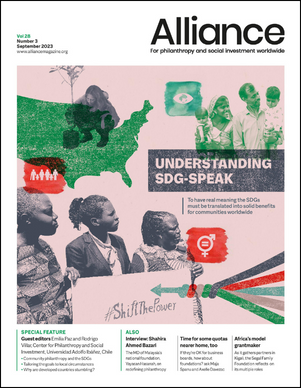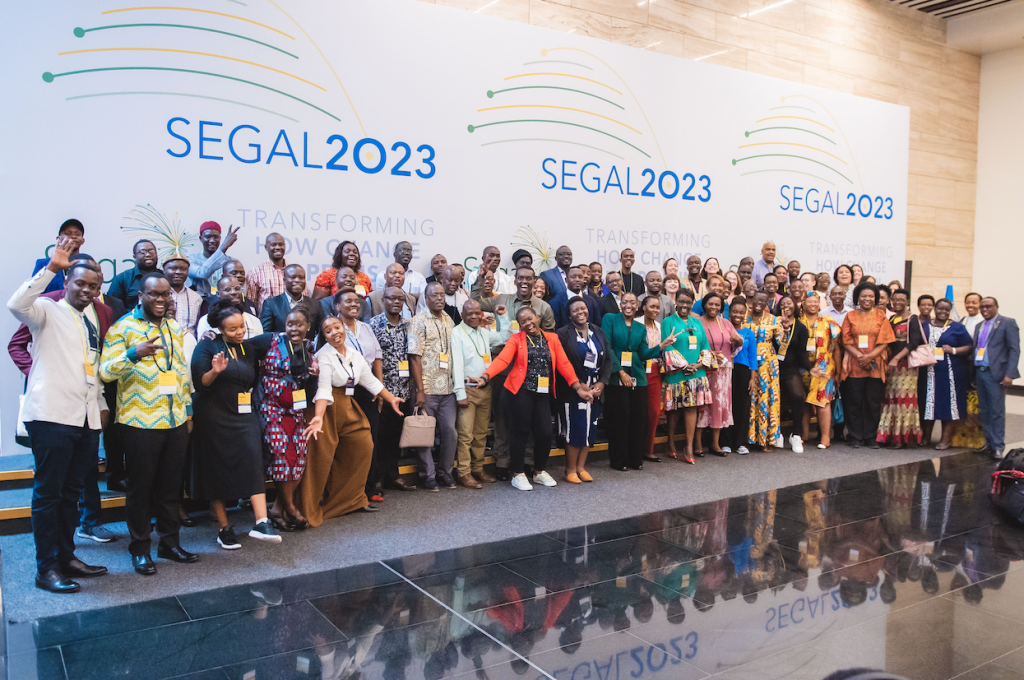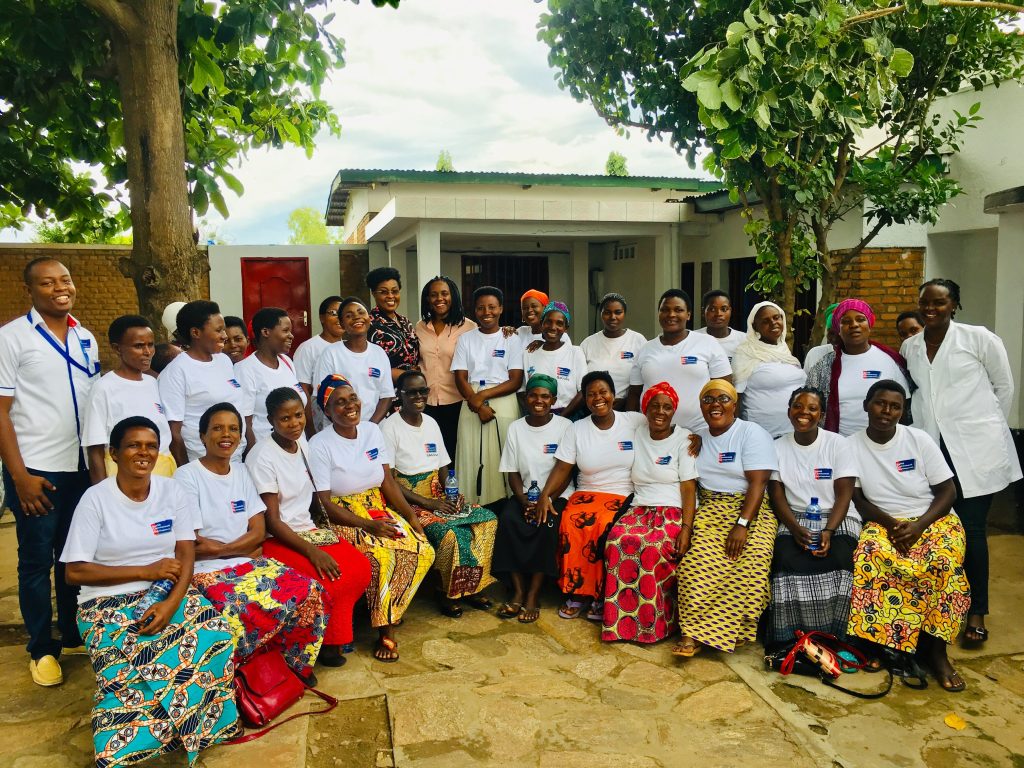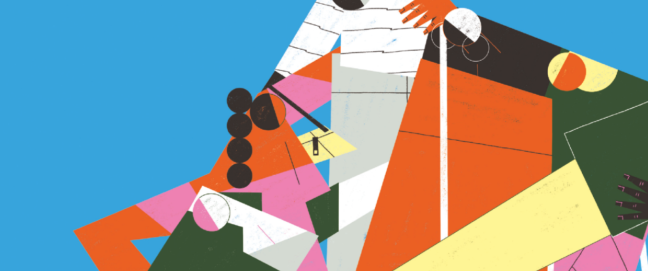According to the UN Economic Commission for Africa, the Covid-19 pandemic pushed 62 million non-poor Africans into poverty and half of the continent’s population now lives below the poverty line. On the other hand, 22 per cent of Africa’s working-age population started businesses in 2017, according to the African Development Bank, and African entrepreneurs mainly consist of women and youth.
As the second largest grantmaker in Africa by number of grants, the US based Segal Family Foundation (SFF) has drawn interest from other funders in its processes, partners and philosophy. Here Françoise Nibizi, founder and CEO of SaCoDé, one of Segal Family Foundation’s long-time partners, and Susan Davis, director of SFF’s Equitable Giving team reflect on what makes the foundation’s work in Africa distinct and what others can learn from their model.
Susan Davis: One of the foundation’s partners in Tanzania recently told me, ‘Segal money just hits different,’ meaning our relationship is unlike that of other funders. While this is wonderful feedback to hear, we don’t want to be unique. We want to accelerate the learning journeys of other funders. I joined SFF because I was intrigued by how they are doing things that – unfortunately – seem radical in the international giving sector: employing programme officers who are based in and have extensive networks in the countries and regions where we fund; seeking out proximate leaders with big ideas and supporting them with capital, capacity and engaging other funders formally and informally. Our Equitable Giving Advisors team has now been expanded to four people to continue to build on our past formula of experimenting, promoting, sharing and convening.
Françoise Nibizi: That chimes with my own experience. SFF brings unrestricted funding, capacity building, growth, connections – and trust. Most major funders provide some but not all of this.
SD: Our foundation was founded with the idea that our resources could offer something new to those doing the hard work of changing the world – specifically high trust, low-headache grantmaking. Our proximate-led grantee partners helped my colleagues better understand the persistent gaps in global funding. In 2013, as an experiment to narrow those gaps, we launched a Social Impact Incubator in Burundi. Our team theorised that bringing cohorts of local leaders together for professional support and community building would help create a robust network of donors and doers. And it paid off. After 10 years of refining this incubator, other organisations like Dovetail Foundation and Livelihood Impact Foundation are following suit. That’s allowing Dedo Baranshamaje, our foundation’s director of strategy, to set his sights on the next wave of innovation and talk to other funders about co-replicating the model.
Our foundation was founded with the idea that our resources could offer something new to those doing the hard work of changing the world – specifically high trust, low-headache grantmaking.
FN: I founded SaCoDé in 2010 to empower underprivileged women and youth to take charge of their own lives and live in dignity. When I met the foundation in 2012, I was working from my garage because I could not afford to rent a proper office. The first grant I received from SFF allowed me to rent one and today, SaCoDé has 10 offices throughout Burundi. Although I had a burning vision concerning women and youth empowerment early on, it was very hard for me to explain it. Through the SFF Social Impact Incubator, I learned how to pitch my vision, write a proposal, set a budget properly, measure the impact, establish a financial system, and organise human resources and my board.
Promoting African talent
SD: In 2017, an analysis of SFF partner growth data revealed that our foreign-led partners were rapidly out-fundraising their African-led peers. This led us to design and launch the African Visionary Fellowship, which promotes and delivers tailored support to the most promising African-led grantee partners. In 2019, SFF established a fund to channel additional philanthropic support to African Visionary Fellows to correct the fundraising inequity within their portfolio; this ultimately became the African Visionary Fund, a separate legal entity. The foundation also established a staff role to promote our partners to other funders. To date, we estimate that we have leveraged an additional $87 million from more than 200 funders for our grantee partners. Our executive director, Andy Bryant, is now aiming to leverage an additional $120 million over the next three years.
Through the SFF Social Impact Incubator, I learned how to pitch my vision, write a proposal, set a budget properly, measure the impact, establish a financial system, and organise human resources and my board.
FN: I was one of the first African Visionary Fellows. It led to SaCoDé being considered one of the best-organised local organisations in Burundi. With Segal’s flexible funding, SaCoDé has innovated to address the varied yet related needs of our target populations. We scaled these innovations in part thanks to the connections the team made. For example, during the height of the pandemic, SaCoDé partnered with many national and international organisations for SMS mass messaging to educate and sensitise community members on how to fight Covid-19. More than 20,000 people are registered to receive messages about other health topics.
We recently launched OKY – a period-tracking app providing education about menstruation and sexual reproductive health in French and Kirundi. More than 1,000 young girls and boys use it. And we make sanitary pads branded Agateka, which means ‘dignity’ in Kirundi. Now more than 205,600 women and girls across Burundi use them, appreciating their wearability, washability and reusability. Organisations such as UNFPA World Vision, Unicef, Zoa, IRC, and Red Cross have purchased Agateka pads for their beneficiaries, including women in refugee camps. More than 500,000 students have benefited from SaCoDé water and sanitation installations at schools, and we support more than 3,000 savings groups across Burundi to promote economic inclusion for women and youth.
Sharing of knowledge
SD: Funding of African-led organisations is at an important inflection point. Critical conversations in recent years have led all types of funders to acknowledge the need to shift power and funding to proximate leaders. SFF now has 352 partners, 87 per cent of whom are African-led, across 20 countries. Through word of mouth, funders are finding us, especially newer ones. They ask us how to inform country strategies, find and nurture great African-led organisations, conduct equitable due diligence, reduce reporting burdens and support safeguarding.
Funding of African-led organisations is at an important inflection point. Critical conversations in recent years have led all types of funders to acknowledge the need to shift power and funding to proximate leaders.
SFF’s team has shared intelligence and due diligence with approximately 50 funders in 2023 alone. To make it easier to do this, we compiled an Equitable Giving Toolkit a living set of resources including our grantmaking process and policies, and reports and templates from Bridgespan, Center for Effective Philanthropy, Council on Foundations, Thousand Currents, Fund the People, and more.
Convening doers and donors
SD: We want more and better funding to go to our partners. For several years, SFF has hosted an annual meeting to celebrate the accomplishments of our partners. Recently, we’ve had an increasing number of funders join us so they can meet – and fund – these visionaries. Many of the 100-plus funder representatives who joined us at Segal 2023 in Kigali, Rwanda wanted a chance to learn from SFF too, so we offered a two-day Donor Salon. Facilitators from our African Visionary Fellows, funder network, and staff led deep dives into understanding our learning journey, funding disparities for African-led NGOs, the role of intermediaries, how to identify and nurture African social impact leaders, impact investing, and more. The combination of inspiration and education built funders’ confidence in engaging in more equitable practices to fund the future of Africa and primed them for meeting with 440 African social impact leaders at Segal 2023.
FN: SFF has introduced me to donors and facilitated my participation in many international meetings. My call to action: we need more funders coming in humbly, believing in grassroots organisations and the leaders who can identify the best solutions for their communities.
Susan Davis, Segal Family F oundation
Françoise Nibizi, SaCoDé








Comments (0)